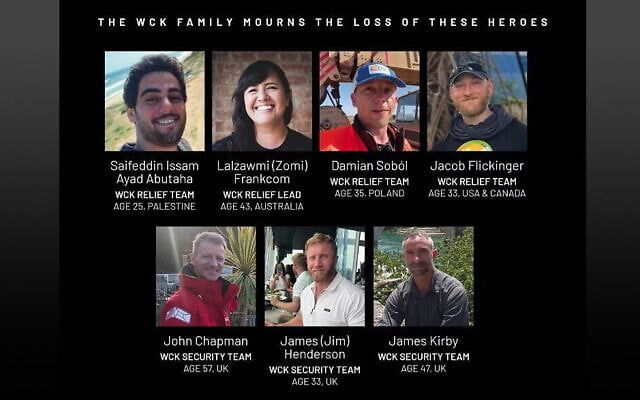


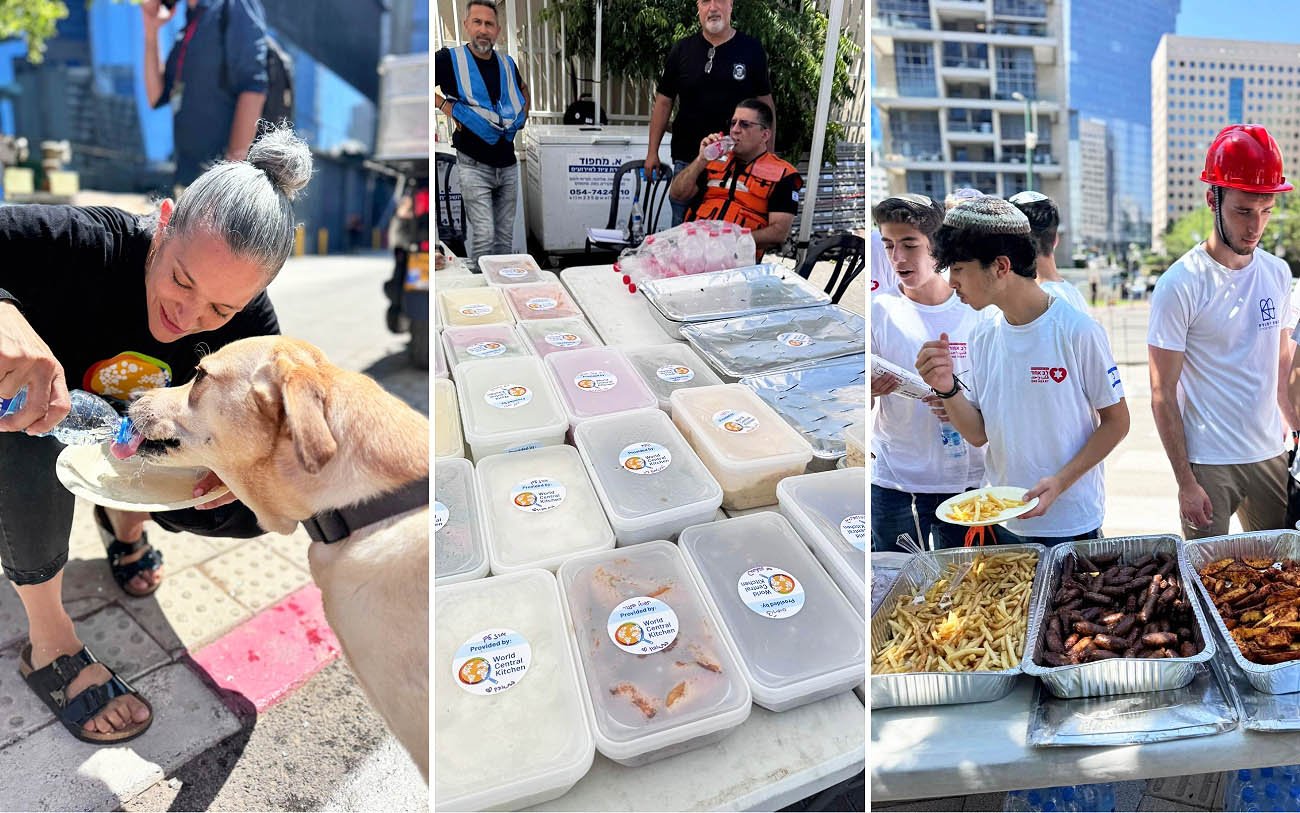
When Tel Aviv resident Ruthie Rousso hears a siren warning of incoming Iranian missiles, she runs to find a shelter with her family, like the rest of the country’s population.
But as soon as she is in a safe space, the head of operations of the World Central Kitchen nonprofit in Israel starts calculating how much water and how many sandwiches may be needed for first responders and evacuees should a missile hit, her mind racing to figure out the logistics involved.
“We hear the explosions, and they are very scary because I have my daughters with me, and the situation is really frightening,” she told The Times of Israel by phone. “At the same time, every explosion I hear, I’m like, okay, that’s another 400 bottles of water. Where are we going to get this water from? And okay, we didn’t order enough bread, we’re gonna need more.”
“I’m basically calculating what I need to do to survive and what I need to do to operate at the same time,” she added.
Established in 2010 by Spanish-American celebrity chef José Andrés, World Central Kitchen works globally to provide fresh meals in response to humanitarian, climate, and community crises.
Over the past week, the organization has served around 20,000 meals to Israelis affected by the conflict with Iran, Rousso said.
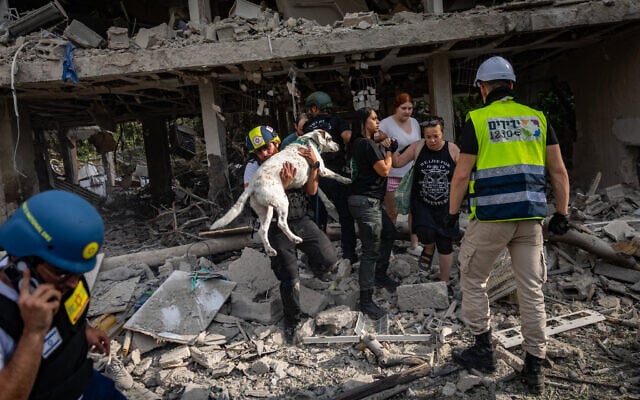
“At this point, most Israelis are affected by the war,” she noted. “My job is to identify those hit the hardest — so we’re primarily focusing on feeding people at sites directly impacted by missile strikes.”
So far, Iran has launched over 500 missiles. While most were intercepted, some have made it through Israel’s air defense shield, killing 24 people and wounding thousands in strikes on apartment buildings, a university, and a hospital, as well as other sensitive sites.
World Central Kitchen’s team in Israel consists of four staff members and several dozen volunteers, not counting the chefs and workers in partner restaurants and kitchens who prepare the food.
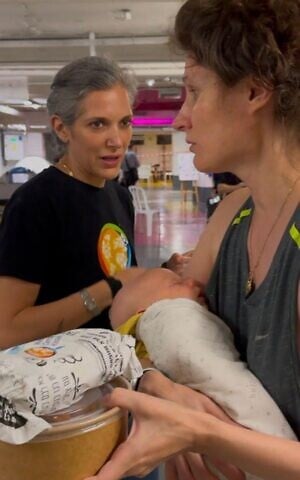
Together, they provide cold water, sandwiches, and wet wipes to help people clean their hands before eating.
“We coordinate with Magen David Adom, the police, and the municipalities,” Rousso said. “Often, we also encounter evacuees leaving damaged buildings or people coming back to collect what they can from their homes, so we feed them as well.”
World Central Kitchen also offers food in all-night public shelters.
“These facilities are mostly for the elderly, families, and disabled people who do not have a shelter at home and for whom running up and down is too difficult, so they spend the night there,” Rousso said. “We make sure that at least they have free food.”
World Central Kitchen is also one of several groups feeding evacuees housed in hotels, who have no kitchen of their own. According to Rousso, the organization is currently serving a few hundred of the roughly 10,000 Israelis who have been displaced by the war so far.
The food provided in public spaces is kosher, while in hotels it depends on the needs of the recipients.
World Central Kitchen is perhaps best known in the region for its work feeding Gazans caught in Israel’s invasion of the Strip, including a deadly run-in with Israeli forces in April 2024, but the group’s work actually began in Israel, where it stepped in right after October 7, 2023, attack by the Hamas terror group.
During the Hamas onslaught, thousands of terrorists invaded Israel from Gaza, killing close to 1,200 people, kidnapping 251, destroying whole communities and leaving tens of thousands homeless.
A day later, the Lebanese Iran-backed Hezbollah terror group began attacking towns in the north, leading to the evacuation of tens of thousands more people. A total of 140,000 people were rendered homeless in Israel by the multifront war.
Soon after the assault, Russo was contacted by chef Karla Hoyos, with whom she had volunteered in a kitchen run by the World Central Kitchen in Ukraine the previous year following Russia’s invasion of the country.
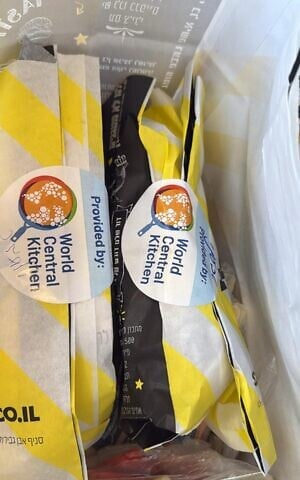
“Karla messaged me to ask me how I was doing,” Rousso said. “I told her I had never been so scared in my whole life. She answered that she was coming.”
World Central Kitchen sent a delegation of 15 people from around the world to Israel, providing some 40,000 meals a day to tens of thousands of Israelis displaced by war and those in need.
“We stopped our first operation in January 2024 and resumed in June last year after the war escalated in northern Israel, providing meals to those who could not evacuate from there,” Rousso said. “We worked in the north until January. In the past few months, we ran some smaller-scale operations.”
Among others, World Central Kitchen provided three meals of Thai food a day to the Thai hostages hospitalized in Israel following their release from Gazan captivity in January and food to first responders and evacuees during the wildfires in Jerusalem in May.
“During the wildfires, I texted Chef José, and he just told me to make sure that the firefighters had all the water and food they needed,” she said.
In Gaza, Israel’s military campaign, aimed at toppling Hamas and returning the hostages, quickly displaced much of the Strip’s population of 2 million-plus, many of whom remain without homes.
As Gazans clamored for aid, a number of UN-backed humanitarian groups handed out basic foodstuffs, like flour and rice. But with many lacking the means to cook, World Central Kitchen filled an important role by distributing hot meals in the Strip.
Saifeddin Issam Ayad Abutaha, Lalzawmi (Zomi) Frankcom, Damian Soból, Jacob Flickinger, James Kirby, James (Jim) Henderson and John Chapman. (World Central Kitchen/X)
Their work came under the spotlight on April 1, 2024, when the IDF struck a World Central Kitchen convoy by mistake, killing seven aid workers — six international staff and one Palestinian — in what Israeli authorities described as a tragic accident.
“It was devastating,” said Rousso. “It still is. The incident remains deeply present in the hearts of everyone involved with WCK. It’s a profound tragedy.”
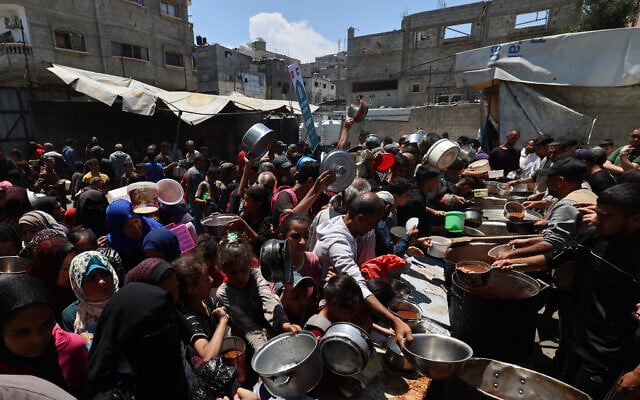
Despite the event, World Central Kitchen resumed its operations in Gaza less than a month later.
In the first 18 months of the war, the group distributed over 130 million total meals and 26 million loaves of bread.
On May 7, the group announced it was forced to shut down its kitchens after running out of food stocks. In March, Israel began preventing aid from reaching the Strip, accusing Hamas of siphoning goods as a means of bolstering its power.
Aid started to be allowed into Gaza again on May 19, though humanitarian groups say it has been slow to reach Gazans. On Saturday, World Central Kitchen announced that some of its kitchens had resumed preparing meals after receiving their first shipments of supplies.
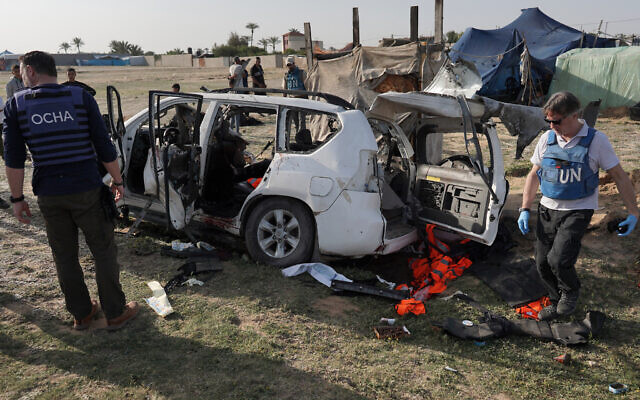
“This first aid shipment is an important milestone, but the effects of prolonged hunger do not disappear overnight,” the group said in a statement. “Hunger leaves deep physical and psychological scars — and even as meals begin again, the damage caused by extended access disruptions continues to impact families and communities.”
Rousso emphasized that the idea behind World Central Kitchen is not to simply provide calories but rather to offer high-quality meals.
“This is a chef’s organization,” she said. “This is not just about humanitarian aid. It has to be good food. I really pay a lot of attention to this aspect. I only work with partners whom I trust that their food will be at a certain standard so that evacuees, first responders, and people in the shelters would get food that respects them.”
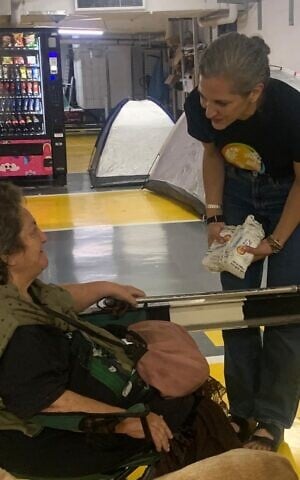
Rousso emphasized that kitchens and restaurants partnering with WCK in Israel belong to all parts of society.
“We work with an ultra-Orthodox kitchen called High Table in Kiryat Gat, an ultra-secular restaurant called Haachim in Tel Aviv, and a kosher deli in Rishon Lezion,” she said.
“Every one is completely different, but all of them go out of their way to make the best food they can as fast as possible,” she added. “It’s amazing to see this unity from different areas and parts of the country.”
A menu for for refugees in hotels recently provided by Haachim included spicy merguez, lamb kebab, schnitzel, freekeh with tomatoes and chickpeas, fire-roasted potatoes, sautéed string beans, roasted cauliflower, vegetable salad and tahini.
“Our budget is very limited; we can only sponsor part of this, and yet I cannot even begin to describe what an incredible job they do,” Rousso said.
After October 7, the sheer magnitude of meals to be provided, many of which needed to be kosher, led Haachim to obtain a temporary kashrut certificate.
This time, with around 10,000 displaced by Iranian missiles thus far, there isn’t the same need, Rousso said.
“Back then, we were distributing 40,000 meals a day,” she said. “Some 20,000 meals in a week still feels like a very small operation. Hopefully, it will remain this way.”

